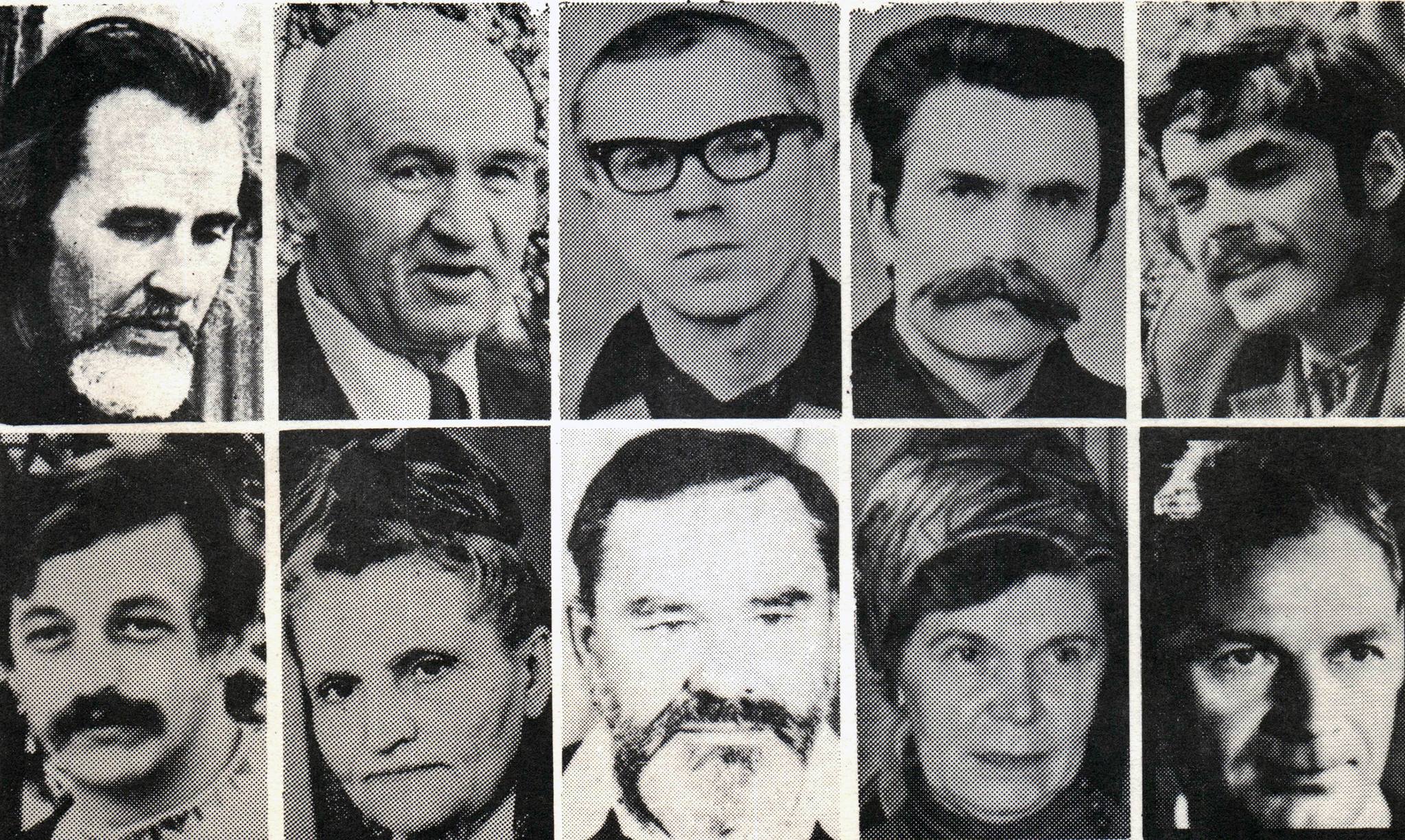Ukrainian human rights group that helped bring down Soviet Union turns 40

9 November 2016 marks the 40th anniversary from the foundation of the Ukrainian Helsinki Group (UHG), a human rights group that initiated a revolution in the consciousness of citizens terrorized by the totalitarian Communist regime. The UHG not only brought Soviet terror and repressions to the world’s attention, they continued Ukraine’s struggle for national liberation which ultimately led to the independence of Ukraine.
In the mid-1970s, political confrontation between the USSR and the West reached such heights that it threatened to escalate into a world war. Therefore, after lengthy negotiations, 32 European countries (except Albania), the USA, Canada and the Soviet Union signed the Final Act of the Conference on Security and Cooperation in Europe in Helsinki on 1 August 1975.
The Helsinki Final Act finally fixed the borders that had been established in Europe after the Second World War. In addition, the USSR became a commercial partner of the West. In exchange, the Soviet Union pledged to observe the humanitarian section of the Final Act, in particular, human rights under the UN Universal Declaration of Human Rights from December 10, 1948, Article 19:
“Everyone has the right to freedom of opinion and expression; this right includes freedom to hold opinions without interference and to seek, receive and impart information and ideas through any media and regardless of frontiers.”

Soviet human rights activists quickly understood that this new international agreement opened a legal basis allowing them to deal legitimately with violations of human rights under a totalitarian regime.
On 12 May 1976, Andrei Sakharov and his supporters founded the Moscow Helsinki Group. The Ukrainians came second, on 9 November 1976. Later, on 25 November 1976, a Helsinki Group was founded in Lithuania, on 14 January 1977 – in Georgia, on 1 April 1977 – in Armenia. In Poland, an independent public group – the Workers’ Defense Committee, later changed to Committee for Social Self-defense – had been active since September 1976. In January 1977, a human rights association called “Charter 77” was launched in Czechoslovakia. A special Congressional committee was created in the U.S.
Thus, the Helsinki human rights movement quickly became international.
The legal human rights organization in Ukraine was founded on the initiative of writer and philosopher Mykola Rudenko, Soviet Army General Petro Hryhorenko, chemist Oksana Meshko, science fiction author Oles Berdnyk, and lawyer Levko Lukyanenko. The group generally had 49 members during its entire existence.

Postcard with portraits of the 10 founders of the Ukrainian Helsinki Group. Top row from left to right: Oles Berdnyk, Petro Hryhorenko, Ivan Kandyba, Levko Lukyanenko, Myroslav Marynovych Bottom row from left to right: Mykola Matusevych, Oksana Meshko, Mykola Rudenko, Nina Strokata, Oleksa Tykhy
The state for man, and not man for the state
On 9 November 1976, the members signed a Declaration to promote the implementation of the Helsinki Agreements and Memorandum No.1. The main goal was to acquaint governments that had participated in the Helsinki Conference and the international community with human rights violations in Ukraine, and protect the rights of Ukrainian citizens living in other Soviet republics.
Memorandum No.1 exposed the crimes of Communism: genocide and ethnocide, forced dispossession, the Holodomor of 1932-1933, political repressions of the 1930s, elimination of the Ukrainian Insurgent Army (UPA), extermination of civilians by the KGB disguised as “insurgents”, total Russification, and persecution of Shistdesyatnyks. The members also pointed to a constitutional legitimacy that would allow Ukraine to leave the USSR.
Memorandum No.5 indicated that the essential attribute of a civilized state is the presence of opposition, and the basic principle should be “The state for man, and not man for the state”. Activists demanded the right to leave and enter the country freely, the free flow of ideas and opinions, elimination of censorship, permission to create free associations and unions, release of political prisoners, and abolition of the death penalty.
Human rights activists initiated a revolution in the consciousness of citizens terrorized by the totalitarian Communist regime.
In authoritarian Soviet republics, people began behaving like free citizens, exercising their constitutional right to freedom of speech, press, demonstrations, and associations. Independent public opinions were voiced openly. Now, demagogic statements about “interference in the internal affairs of the USSR” became inadmissible as they violated fundamental human rights.
To liberate Ukraine from colonial rule
The group was engaged not only in human rights issues. As the global colonial system continued to disintegrate, the Ukrainian Helsinki Group reminded the world that Ukraine was still subjugated to a foreign power, and raised the issue of recognition of Ukraine by the international community.
In an interview with Hromadske Radio, UHG member Myroslav Marynovych stated that for him the issue of Ukraine’s independence and protection of human rights in the Soviet Union were one and the same:
“I have never distinguished between human rights and national rights. When I was recently writing my memoirs and looking through materials in the Chronicles of Current Events, there were quotes by several dissidents, including Ukrainians, who stated that human rights and national rights were identical. It was much later that activists began distinguishing between them, and even opposing them.”









Comments